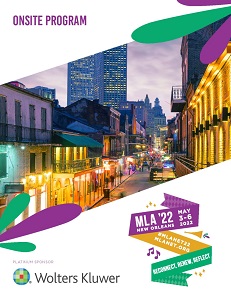Back
Paper: Program Description Abstract
Innovation & Research Practice
Session: Papers Virtual Session 1B
Reproducibility Is Not Rigor: Teaching Open Practices to Empower Researchers
Wednesday, April 27, 2022
2:00 PM – 2:15 PM CT
- HY
Hao Ye, PhD
Reproducibility Librarian
Health Science Center Libraries
Presenter and Author(s)
Background: Over the last decade, there has been a substantial increase in interest in research reproducibility, including news coverage of the "Replication Crisis" in non-academic media, such as The Washington Post, The New York Times, and National Public Radio (NPR). Concerns about the reliability of medical research and pre-clinical studies, in particular, have resulted in new policy, such as NIH Rigor & Reproducibility guidelines on reporting research findings, sharing data and materials, and additional requirements when applying for research funding. However, research reproducibility is a multifaceted and multifarious concept, touching upon much more than whether research is "rigorous" and "reliable".
Description: A newly developed program within a health science library provides instruction in research reproducibility through the lens of empowering researchers. Rather than focus on policies from funding agencies and institutions, instructional sessions introduce skills that are both beneficial to the researchers, and which represent or lead to best practices in open scholarship and reproducibility. Examples of topics include: organizing data in spreadsheets, version control with GitHub, writing reproducible reports using RMarkdown, data cleaning with OpenRefine, and more. Instruction draws on pedagogical principles from The Carpentries to "meet learners where they are at": giving examples of real problems that researchers face and that the new skill addresses, demonstrations of performing simple tasks with the new tool or method, and a set of curated resources providing pathways for further self-learning or reference.
Conclusion: From the perspective of the author, the instructional sessions seem well-received, with positive comments from attendees, and signups for other sessions in the same umbrella program from attendees who initially registered for and attended one session of interest. Other evidence of program effectiveness comes from a guest session taught at an NIH Data Science Hackathon. After instruction, the organizing host reported an increase in activity on shared GitHub repositories, suggesting attendees were successfully converting learning into practice. Finally, to meet learner needs, video recordings of the sessions are provided to all registered attendees (regardless of actual attendance), and all instructional content is publicly available on individual workshop websites, linked from a common libguide, to function as an accessible resource.
Description: A newly developed program within a health science library provides instruction in research reproducibility through the lens of empowering researchers. Rather than focus on policies from funding agencies and institutions, instructional sessions introduce skills that are both beneficial to the researchers, and which represent or lead to best practices in open scholarship and reproducibility. Examples of topics include: organizing data in spreadsheets, version control with GitHub, writing reproducible reports using RMarkdown, data cleaning with OpenRefine, and more. Instruction draws on pedagogical principles from The Carpentries to "meet learners where they are at": giving examples of real problems that researchers face and that the new skill addresses, demonstrations of performing simple tasks with the new tool or method, and a set of curated resources providing pathways for further self-learning or reference.
Conclusion: From the perspective of the author, the instructional sessions seem well-received, with positive comments from attendees, and signups for other sessions in the same umbrella program from attendees who initially registered for and attended one session of interest. Other evidence of program effectiveness comes from a guest session taught at an NIH Data Science Hackathon. After instruction, the organizing host reported an increase in activity on shared GitHub repositories, suggesting attendees were successfully converting learning into practice. Finally, to meet learner needs, video recordings of the sessions are provided to all registered attendees (regardless of actual attendance), and all instructional content is publicly available on individual workshop websites, linked from a common libguide, to function as an accessible resource.

.png)

